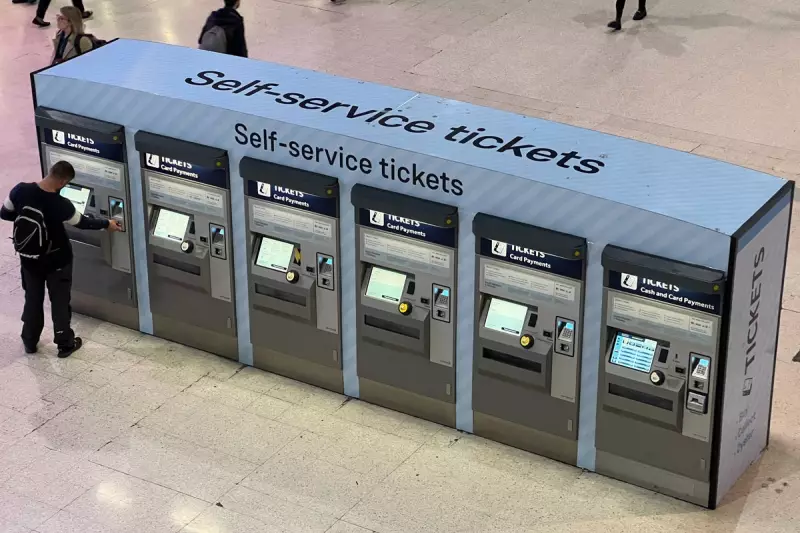
Historic Rail Fare Freeze Announced in Autumn Budget
In a landmark move for Britain's railway system, Chancellor Rachel Reeves has announced the first comprehensive freeze on train ticket prices in three decades. The significant policy shift, revealed in Wednesday's autumn Budget, marks a dramatic departure from the annual fare increases that have become customary for millions of rail passengers across England.
The freeze applies specifically to services operated by English train companies and is projected to save regular commuters and occasional travellers hundreds of pounds annually on various ticket types including season tickets, peak returns and off-peak journeys between major cities.
What the Freeze Actually Means for Passengers
For generations of British travellers, the narrative of relentlessly rising rail fares has become an accepted reality. Each year typically brings multiple announcements of impending price hikes, whether through the August retail price index indicator or the traditional November rail price release.
2026 represents a fundamental break from this pattern. Rather than implementing the painful 4.8 percent increase that would have mirrored last July's RPI figure, the government has chosen to maintain current pricing levels across the network.
However, passengers should note an important distinction: the government only controls "regulated" fares, which account for approximately half of all tickets. These include season tickets in the London area, anytime tickets around major cities and many off-peak return tickets on long-distance journeys.
Unregulated fares, such as the popular London to Manchester route, technically remain outside direct government control. Nevertheless, transport secretary Heidi Alexander is expected to intervene if train operators like Avanti West Coast propose significant increases beyond current levels.
Industry and Passenger Groups Welcome Decision
In what might be a first in living memory, the government's fare decision has attracted widespread approval across the transport sector. Alex Robertson, chief executive of passenger watchdog Transport Focus, described the move as "extremely welcome news for rail passengers who consistently tell us value for money is their highest priority".
The sentiment was echoed by union representatives, with Mick Whelan, general secretary of train drivers' union Aslef, noting: "We are pleased that after 14 years of the Tories pricing people off our railways, this Labour government is helping people to commute to work and travel for pleasure."
International rail expert Mark Smith, formerly a British Rail manager, highlighted the broader context: "I'm tempted to say, about time! We've seen the real cost of motoring fall repeatedly for years. Fuel duty has been frozen since 2011 and was actually cut in 2022."
This comparison with motoring costs raises important questions about transport policy priorities. The Budget maintained the tradition of supporting motorists with another tax break extending until at least September 2026, costing an estimated £2.4 billion next year alone.
Missed Opportunities for Fundamental Reform
Despite the welcome relief for existing passengers, the announcement conceals what some critics see as a failure to address the fundamental flaws in Britain's rail fare system. The current structure remains notoriously complex and filled with anomalies that confuse travellers and potentially discourage rail use.
Travel correspondent Simon Calder, who spends substantial amounts on rail travel himself (around £200 in the past week alone), acknowledges the benefits while questioning whether the move goes far enough. The freeze essentially represents a decision to have taxpayers subsidise the system further, including many who rarely or never use train services.
More radical proposals, such as introducing a half-price national railcard available to all passengers, could provide stronger incentives for modal shift from road to rail. Similar schemes operate successfully in Germany and Switzerland, costing approximately £200 and £100 respectively and building crucial passenger loyalty that the railways desperately need.
While the fare freeze provides immediate financial relief for regular travellers, the underlying need for comprehensive reform of Britain's outdated fare structure remains unaddressed. The government's decision represents a welcome pause in the upward trajectory of rail costs, but falls short of the transformational change many advocates had hoped for.





